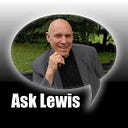Member-only story
The Great Game Theory Guide: #16 How to Prevent a Bank Robbery, Your Bank Robbing You!
Q. Lewis, I read that you are a futurist who uses applied game theory to make predictions. Where do you get the information you need to predict what is likely to happen and create winning game-based strategies to solve problems?
A. I have been a futurist for over 50 years. I don’t mean a psychic and I don’t mean someone who thinks about what the future might be. I’m talking about someone who uses predictive analytics, probability theory, statistical analysis, and other key scientific tools in addition to intuition to predict what is likely to happen in a certain time and a certain place involving certain people.
By photos for class
Now, before I answer your question it might be helpful if we begin with a short introduction to the basics of game theory. Below is an article (a 6-minute read) as well as a more in-depth video embedded in the article. Both were created so they would be understood by 12-year-old.
Using all of the gaming skills you have learned from the sandbox, through Rubick’s Cube, and now into video games and sports will change your life in…
